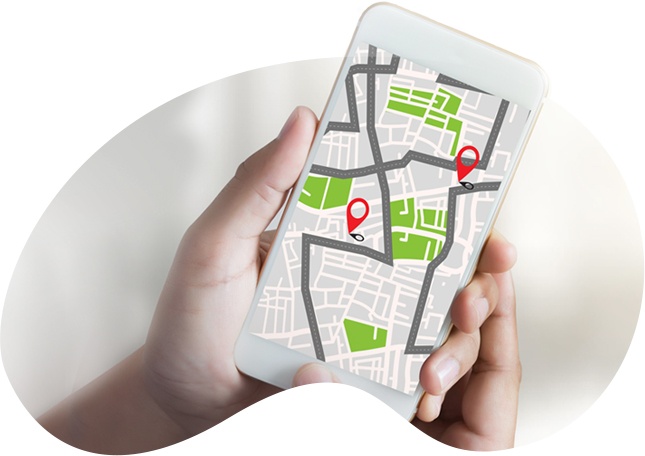


Children are spending an ever-increasing amount of time online. Of course, there is nothing wrong with that, because so are their parents. The internet is a never-ending source of education and entertainment and has an important social function. However, we must not forget that it has its own set of potential dangers.
Whether children are browsing the internet on a laptop, using popular apps like Tik Tok or Pokémon Go, chatting with their friends through Messenger or WhatsApp, or even playing video games, the internet is potentially connecting them to an unimaginable amount of people and content. Certain content is potentially harmful and children need to be protected from trolls and predators. Luckily, there are tools to help you do just that.
Modern parents rely on parental controls to monitor their children’s online behavior, block harmful content, track their location, and keep them safe.


Parental controls are a type of software that will help you monitor your family’s online activity and filter out any type of unwanted content. They are available on almost every type of internet-enabled device, including computers, tablets, smartphones, and even gaming consoles. Below you will find four of the most important functions this type of software offers.
One of the most basic functions of parental controls is to block pornographic websites. Studies have shown that access to pornography at a very young age can be damaging to a child’s psyche. Additionally, you can choose to block other specific sites or website categories in order to ensure your child can only access suitable content for his or her age.
Depending on which type of software you choose, you can monitor your child’s online activity without blocking access to certain sites. That way, you will have a good idea of what type of sites your child is visiting. Different software options will send you alerts if your child visits certain sites, or give you access to a list of all the pages your kiddo has clicked on.
While internet access has many benefits to a child’s life, it can also be a major distraction from other important activities, such as homework, family life, and sports. With parental control software, you can manage the amount of screen time your child has each day. That way, you can choose how much time your child spends browsing, gaming, or watching Netflix on a daily basis.
Thanks to parental controls, you can sleep soundly, knowing that your child has no access to unsuitable content. Since this type of software offers you the possibility to monitor your child’s online behavior, you can talk to your child about which sites they are visiting and why.

Even though mobile phone and internet service providers offer certain options for child security, for a more comprehensive solution, we recommend mobile security apps such as mSpy.
mSpy is the industry leader in parental control software for smartphones. Their app allows you to monitor almost everything your child does with his or her smartphone. You can keep track of their text messages, calls, Snapchat, Whatsapp, Messenger, and more. You will get an overview of every site they have visited and every online conversation they have.
Another handy feature is the ability to track their location in real-time. Thanks to a roadmap featuring timestamps of every place they have visited, you can make sure they are where they are supposed to be and that you know exactly where to pick them up.
Most mobile internet service providers have several options to control privacy and data usage. Additionally, many of them offer content filtering, content monitoring, and location tracking services. For extra security, you can opt to install extra best parental control apps. These offer many benefits.
By taking advantage of usage controls, you can turn off certain features, such as downloading videos or images, text messaging or internet access. You can also limit the number of texts and calls and set time limits for the latter.
Just like on regular browsers, you can also restrict what your child can access on his or her mobile device. You can also limit what your child can download. Of course, this includes blocking adult content as well.
Knowing where your child is at all times is especially important for younger children. Using location monitoring settings, you can track your child’s location in real-time. These simply use the GPS systems that are already built into all modern smartphones.
Though most of the internet is safe, the very fact that the internet can connect your child to almost any kind of person or content means you should take extra precautions. Below, you will find six potential online threats you should be aware of.
Adult content is intended for adults only, and children should never be exposed to it. Studies have shown contact at a young age with pornographic materials can lead to early sex, high-risk sex, sexual violence, and addiction. Of course, many other types of content are not for children either. There have been many recorded cases of children using their parents’ credit cards to create an account on gambling sites. This can cost parents thousands of dollars while giving children bad habits that might be hard for them to lose later in life.
Cyberbullying can take many ugly forms. What starts out as trolling can eventually lead to more severe forms of abuse. A person or group of persons can start posting negative remarks about someone on a forum, or anonymously send them insults or even threats. This has even led to suicide in a few cases. While 43% of children admit to having been bullied online, only 10% of these children ever report the problem to their parents or teachers. This demonstrates why parents should be extra cautious when it comes to cyberbullying.
Sexting is a phenomenon when children or minors send each other nude or inappropriate photos. Though it may seem innocent enough to the minor, and they may trust the person they are sexting with, things can go wrong very quickly. Once a photo is sent, it can never be retrieved. It can be shared, traded, and even sold an infinite amount of times. There have been plenty of scandals involving underage teens sharing others’ photos with their friends and even the whole school. This can become a major source of shame and has forced several teenagers to have to change schools.
Online predators are simply the worst type of people a child can encounter. These pedophile adults will often pose as good-looking teenagers by using fake photos and entice children into having sexual conversations, sharing inappropriate photos or videos, and even meeting up in person.
Most apps are not particularly dangerous since they do undergo screening to get into the Google Play Store or Apple App Store. However, many apps contain in-app purchases. Often they will help the player achieve the goal in the game, get a higher score, or unlock certain levels. While this may not be a direct danger to the child, it can certainly be a danger to your wallet. There are also plenty of apps that could be considered malware.
Visiting sites that are not trusted can lead to all kinds of issues for your hardware and software and can ultimately cost you a lot of money. Viruses are programs designed to damage your computer’s operating system. Trojans can take your computer hostage, allowing others to access your information and control your device. Ransomware can leave your device blocked while a hacker demands an outrageous sum in Bitcoins just to remove it.
Using parental control software does not mean you should restrict and control your child’s every move on- and offline. It is not about being an overly controlling parent.
Instead, you should communicate with your child and help them understand the way the online world works. You should have a conversation with your child about what types of content they enjoy and why. Ask them which websites they find interesting, which games they play and which apps they use. You should warn them about online predators and make sure they let you know right away if one approaches them.
Cyberbullying and sexting is another topic that needs to be discussed. You should warn your child to never send nude or erotic photos to classmates, and if they are harassed online, they should know that they can rely on you for help and support. Communication is the most important factor to ensure your child’s wellbeing. Instead of blindly restricting their access, you should use parental controls as a tool to give your children an added layer of protection.
You would not let your children play unsupervised or talk to strangers unsupervised, so why would you let them surf the web unsupervised? Cyberbullying, malware, unsuitable or adult content, and online predators are lurking and it is your responsibility as a parent to keep your child safe. Luckily, parental control software lets you monitor your child’s online behavior and filter out unwanted content. Parental controls will give you easy to use, age-appropriate settings that will enable you to filter, monitor and block your child’s online activities.